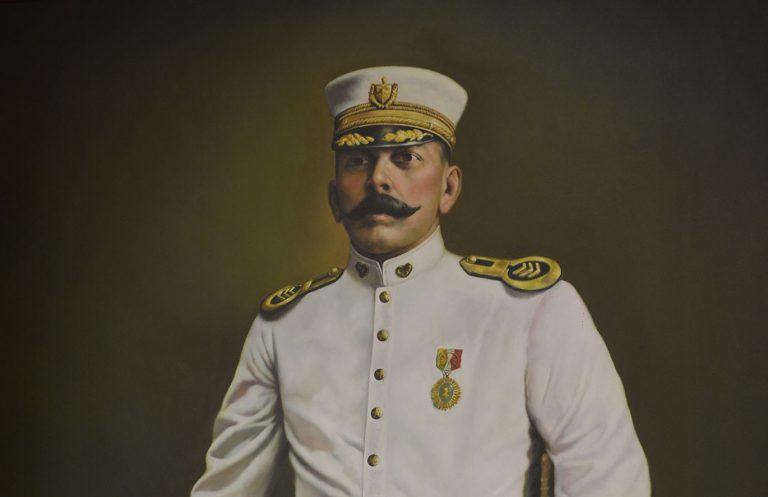Since the Office of the Historian of Camagüey city inaugurated the José Marín Varona Concert Hall in 2017, the music and history of that remarkable Camagüey composer have returned, to do justice to his memory.
A giant painting with his elegant image welcomes the magical site, which for its opening was attended by one of his few descendants still alive, the great-grandson Abelanio Pérez Marín; who was thanked for the courtesy of being present and with an emotional bow, he expressed that the feeling was mutual.
When commemorating the 163rd anniversary of the birth of José Marín Varona, it is timely to recall some important passages in his life, which are not only linked to music, since his independence ideals were present in his work and actions.
His music career
Marín Varona was a pianist, composer, pedagogue and music critic, considered in his time as one of the most representative artists of salon music.
According to researcher Lourdes Cepero, an inventory of his prolific work includes; an operetta, numerous zarzuelas, tangos, waltzes, mazurkas, two-steps, songs, guajiras and other Creole genres such as danzón, habanera and guaracha.
Notable is his Álbum de piezas para piano, an Álbum de romanzas para triple and Caprichos cubanos, which became known under the generic name of Tropicales.
The last album “Caprichos cubanos” was awarded a silver medal at the Universal Exhibition in Paris in 1900, winner of diplomas and also won the first prize at the National Exhibition of 1911.
In his efforts to spread the musical values of the island, he was deputy director of the Musical Gazette of Havana and founded the Cuba Musical magazine, in which he served as critic. He was also a professor at the Municipal Conservatory of Havana, a member of the National Academy of Arts and Letters, and president of its music section for several years.
His ideals
His independence ideas forced him to leave for Key West, due to the pressure of the Spanish Colony, and in exile he continued to offer concerts, to support the insurrection from abroad with some funds.
With the nascent Republic he returned and in 1902 he founded and directed until his death, the Artillery Corps Band, which from 1905 would become the Army General Staff Band. For these reasons, according to the criteria of several musicologists, Marín Varona should be recognized as the initiator of the military bands in Cuba.
As expected of a patriot like him, one of the last times he was seen in public was on February 24th, 1912, at the unveiling gala of the equestrian statue of Ignacio Agramonte. There, the Band of the General Headquarters of the Republic premiered the overture Al Mayor, composed by Marín for the occasion.
On September 12th of that same year, the sensitive composer died in Havana. When dismissing the procession, the Infantry Band performed his memorable song Acuérdate de mí. Beautiful way to say goodbye to someone who in life was a faithful defender of music, military bands and the honor of his homeland.
Justice to his memory
There are many reasons to feel proud of our musical history and of all the creators who have enriched it over time.
The Concert Hall built by the Historian’s Office, in the old religious chapel of the old building located at the intersection of San Pablo and Luaces Streets, honors this musician from Camagüey since 2017, by bearing his name.
The stage is a space for good music of all times and the intense work of the remarkable composer, so little known in his homeland, is revealed.
José Marín Varona, without a doubt, is on the podium along with all his countrymen, his famous Tropicales are full of inspiration and tenderness; Let’s slide back the musical curtains to attend a concert where the melodies will prove us right.
Translated by: Aileen Álvarez García






